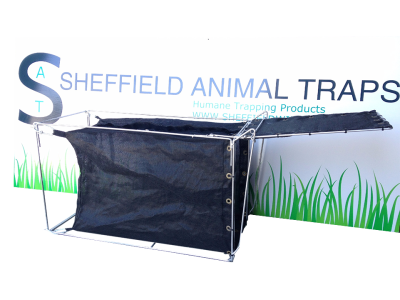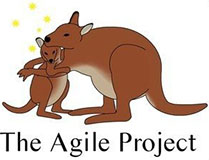As many members of the Cairns’ Northern Beaches community know, The Agile Wallaby Project now has a Damage Mitigation Permit from the Department of Environment and Science to allow us to relocate 400 wallabies from their currently overcrowded habitat around the Trinity Beach area. This will be one of the largest relocations of macropods in Australia, and the first one managed by wildlife carers.We expect that the outcome of this project is to lessen the demand for food, water and roaming space for the remaining wallabies in the Trinity Beach area and allow them to live in a safer and more sustainable environment, further away from busy roads, schools and playing fields. The relocated wallabies will be taken to a new habitat away from encroaching urbanisation and will mix with existing wallabies there.This project has had quite a few hiccups along the way and has taken a lot of planning and preparation, but we are excited to announce that we will soon be starting. The outline of our plan is: Phase 1: We will start luring the wallabies towards our volunteers and the Thomas traps (the soft cages we will use to capture the wallabies) with sweet potato. We want the wallabies to become used to the traps and not be frightened by them. This will take place in the Sports and Playing fields precinct of Trinity Beach, from about mid-October. Meanwhile our volunteers will be getting training in capture and release techniques and we will be buying the equipment needed for the transferring of the wallabies.Phase 2: We will capture the first 30 wallabies using the Thomas traps. Our local vet partners will check the wallabies for health and injury issues, and we will tag the animals. We will then take them immediately to their new habitat and release them. We haven’t yet set a date for this first capture but hope that it will be within the next 3-6 months.Phase 3: We will evaluate our experiences of the first capture and fine-tune our techniques if necessary. We will start to track and monitor the relocated wallabies to check their movement patterns, activity and general health. If there are no adverse events with the first 30 animals, we will move on to the next phase.Phase 4: We will have a multi-staged relocation of the final 370 wallabies.During this relocation process we will also be liaising with Cairns Regional Council about a comprehensive management plan for the remaining wallabies, involving fencing, landscaping and other strategies to retain as much wildlife habitat as possible while also keeping them from the schools, sporting clubs and other public areas.Many thanks for your interest and support to date. We will continue to inform community members with more update flyers as the project rolls out. For further information please call Shai Ager on 0467 022358.
Phase 1: We will start luring the wallabies towards our volunteers and the Thomas traps (the soft cages we will use to capture the wallabies) with sweet potato. We want the wallabies to become used to the traps and not be frightened by them. This will take place in the Sports and Playing fields precinct of Trinity Beach, from about mid-October. Meanwhile our volunteers will be getting training in capture and release techniques and we will be buying the equipment needed for the transferring of the wallabies.Phase 2: We will capture the first 30 wallabies using the Thomas traps. Our local vet partners will check the wallabies for health and injury issues, and we will tag the animals. We will then take them immediately to their new habitat and release them. We haven’t yet set a date for this first capture but hope that it will be within the next 3-6 months.Phase 3: We will evaluate our experiences of the first capture and fine-tune our techniques if necessary. We will start to track and monitor the relocated wallabies to check their movement patterns, activity and general health. If there are no adverse events with the first 30 animals, we will move on to the next phase.Phase 4: We will have a multi-staged relocation of the final 370 wallabies.During this relocation process we will also be liaising with Cairns Regional Council about a comprehensive management plan for the remaining wallabies, involving fencing, landscaping and other strategies to retain as much wildlife habitat as possible while also keeping them from the schools, sporting clubs and other public areas.Many thanks for your interest and support to date. We will continue to inform community members with more update flyers as the project rolls out. For further information please call Shai Ager on 0467 022358.
 Phase 1: We will start luring the wallabies towards our volunteers and the Thomas traps (the soft cages we will use to capture the wallabies) with sweet potato. We want the wallabies to become used to the traps and not be frightened by them. This will take place in the Sports and Playing fields precinct of Trinity Beach, from about mid-October. Meanwhile our volunteers will be getting training in capture and release techniques and we will be buying the equipment needed for the transferring of the wallabies.Phase 2: We will capture the first 30 wallabies using the Thomas traps. Our local vet partners will check the wallabies for health and injury issues, and we will tag the animals. We will then take them immediately to their new habitat and release them. We haven’t yet set a date for this first capture but hope that it will be within the next 3-6 months.Phase 3: We will evaluate our experiences of the first capture and fine-tune our techniques if necessary. We will start to track and monitor the relocated wallabies to check their movement patterns, activity and general health. If there are no adverse events with the first 30 animals, we will move on to the next phase.Phase 4: We will have a multi-staged relocation of the final 370 wallabies.During this relocation process we will also be liaising with Cairns Regional Council about a comprehensive management plan for the remaining wallabies, involving fencing, landscaping and other strategies to retain as much wildlife habitat as possible while also keeping them from the schools, sporting clubs and other public areas.Many thanks for your interest and support to date. We will continue to inform community members with more update flyers as the project rolls out. For further information please call Shai Ager on 0467 022358.
Phase 1: We will start luring the wallabies towards our volunteers and the Thomas traps (the soft cages we will use to capture the wallabies) with sweet potato. We want the wallabies to become used to the traps and not be frightened by them. This will take place in the Sports and Playing fields precinct of Trinity Beach, from about mid-October. Meanwhile our volunteers will be getting training in capture and release techniques and we will be buying the equipment needed for the transferring of the wallabies.Phase 2: We will capture the first 30 wallabies using the Thomas traps. Our local vet partners will check the wallabies for health and injury issues, and we will tag the animals. We will then take them immediately to their new habitat and release them. We haven’t yet set a date for this first capture but hope that it will be within the next 3-6 months.Phase 3: We will evaluate our experiences of the first capture and fine-tune our techniques if necessary. We will start to track and monitor the relocated wallabies to check their movement patterns, activity and general health. If there are no adverse events with the first 30 animals, we will move on to the next phase.Phase 4: We will have a multi-staged relocation of the final 370 wallabies.During this relocation process we will also be liaising with Cairns Regional Council about a comprehensive management plan for the remaining wallabies, involving fencing, landscaping and other strategies to retain as much wildlife habitat as possible while also keeping them from the schools, sporting clubs and other public areas.Many thanks for your interest and support to date. We will continue to inform community members with more update flyers as the project rolls out. For further information please call Shai Ager on 0467 022358.
